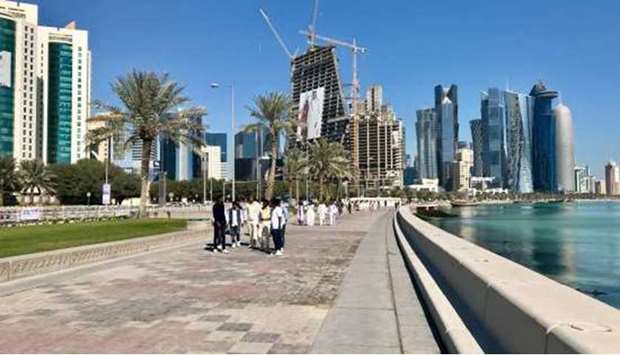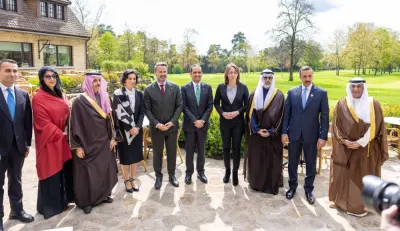Food system in the GCC countries could absorb pandemic-like shocks, at least in terms of availability and access, due to resilience preparedness, rapid response and strategic reserves built into the system, Food and Agriculture Organisation (FAO) has said in a recent report.
In its report ‘Near East and North Africa Regional Overview of Food Security and Nutrition’ FAO cited examples of responses implemented in the Arab region including Qatar to strengthen resilience of food supply chains.
All actors in the food system were involved: Governmental, humanitarian, private, and non-governmental including producer organisations and co-operatives. Responses focused on availability and access, while utilisation was not a priority. Action was taken to strengthen the food supply chain principally (imports, local production, food waste) and the food environment (affordability, price control, food sharing).
Qatar, it said, increased storage of essential foods such as wheat, edible oils, rice, frozen red meat, long-life milk, powdered milk and sugar.
Food supply resilience aims to increase commodity inflow, decrease trade outflow and enhance production, through digital technologies and supporting local organisations and farmer groups.
According to FAO, the Covid-19 pandemic caused significant disturbances to food security and nutrition including the Arab Region. The disruption to global value chains, especially wheat, rice, soybean and meat due to labour and transport issues, and a trade ban by some exporting countries, compounded lockdowns in exporting and importing nations.
Virus containment measures and the economic recession affected every aspect of food and nutrition security. Lockdown put pressure on food systems, disrupting local, regional and global food trade, preventing food workers from doing their job and reducing people’s ability to access food.
The report also said one-quarter of the population in the Arab Region is obese with higher rates among women than men, the GCC countries among the most affected. The transition towards unhealthy diets is associated with changing economies, especially in the GCC, it noted.
The major economic activities in the Arabian Gulf before the oil boom included agriculture, grazing, and fishing. Diets changed following the economic transformation towards energy-dense, nutrient-poor foods, resulting in higher obesity. Changed habits, such as eating more often in restaurants, using more salt and employing a family cook have also played a role, FAO said.
In its report ‘Near East and North Africa Regional Overview of Food Security and Nutrition’ FAO cited examples of responses implemented in the Arab region including Qatar to strengthen resilience of food supply chains.
All actors in the food system were involved: Governmental, humanitarian, private, and non-governmental including producer organisations and co-operatives. Responses focused on availability and access, while utilisation was not a priority. Action was taken to strengthen the food supply chain principally (imports, local production, food waste) and the food environment (affordability, price control, food sharing).
Qatar, it said, increased storage of essential foods such as wheat, edible oils, rice, frozen red meat, long-life milk, powdered milk and sugar.
Food supply resilience aims to increase commodity inflow, decrease trade outflow and enhance production, through digital technologies and supporting local organisations and farmer groups.
According to FAO, the Covid-19 pandemic caused significant disturbances to food security and nutrition including the Arab Region. The disruption to global value chains, especially wheat, rice, soybean and meat due to labour and transport issues, and a trade ban by some exporting countries, compounded lockdowns in exporting and importing nations.
Virus containment measures and the economic recession affected every aspect of food and nutrition security. Lockdown put pressure on food systems, disrupting local, regional and global food trade, preventing food workers from doing their job and reducing people’s ability to access food.
The report also said one-quarter of the population in the Arab Region is obese with higher rates among women than men, the GCC countries among the most affected. The transition towards unhealthy diets is associated with changing economies, especially in the GCC, it noted.
The major economic activities in the Arabian Gulf before the oil boom included agriculture, grazing, and fishing. Diets changed following the economic transformation towards energy-dense, nutrient-poor foods, resulting in higher obesity. Changed habits, such as eating more often in restaurants, using more salt and employing a family cook have also played a role, FAO said.




